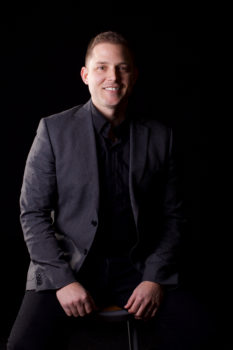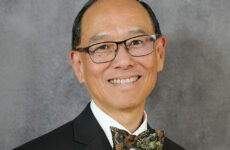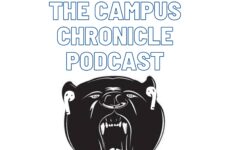
DMACC’s new Music Department Chairman, James Thompson. Photo by Anthony Arroyo
Interested in completing a music program here at DMACC? Don’t fret. DMACC’s new Music Department Chairman James Thompson plans to compose the now-minor music education program into a major transferring opportunity.
After finishing his degree in Doctor of Musical Arts at the University of Iowa in 2013, Thompson had the opportunity to work with City High School in Iowa City.
“Iowa City is a great place to live, with a thriving music community. They are really supportive of the arts,” Thompson said. “I always knew it was going to take a special opportunity for me to consider leaving there, and that’s when this opportunity came up. I knew my heart was sort of at the college level, I had some experience teaching at the college level as an adjunct and I knew that is where I really wanted to be.”
Thompson started his musical adventure at Mt. Pleasant in fifth grade when his teacher, Jill Anderson, suggested he should audition for the Iowa OPUS Honor Choir. Thompson successfully made it into the choir, stating, “That experience showed me what was possible for being a part of a music making community . . . When I went to the OPUS Honor Choir, I saw all the possibilities beyond my world.”
Thompson’s grandmother played a great part in his love for music as well. With her tremendous ability to play the piano, she got Thompson interested in taking lessons, and even bought his family their very first piano.
During his job at City High School, Thompson got the chance to work alongside Anderson once again, because she was involved in music programs for Iowa City’s students. Thompson has had the chance to sing professionally around the world, and hopes to use his experiences as a basis for his instruction.
He was alerted to the position by Simon Estes, whom he has known and worked with for fifteen years, and Thompson saw the opening as an immense opportunity.
DMACC’s current music program offers enough credits for roughly one whole year of schooling, but Thompson is looking to expand that to two years.
Thompson plans to include more music theory classes which are required for any students looking to go into music as a career.
“Within your first two years of school you take four theory courses; we currently have two [theory courses], so I’ve added more to have that full two years needed to transfer,” Thompson stated. Thompson hopes students will be attracted to the music program at DMACC, especially with the current tuition rates being smaller compared to most colleges.
“I just feel a tremendous responsibility because there are about seven to eight students right now who are in a relatively small music department who are interested in music as a career.”
Thompson also notes that even though DMACC does not currently offer band or orchestral ensembles, applied lessons are still available; and with the expansion of the program the next logical step would be to include arrangements which would require a collaboration of instruments.
Thompson said, “I saw the potential for DMACC becoming the destination for people to advance in music, not only for the people who still are interested in music after high school but students who want to pursue music as a career as well. There’s just endless potential for what this program can be.”





Comments